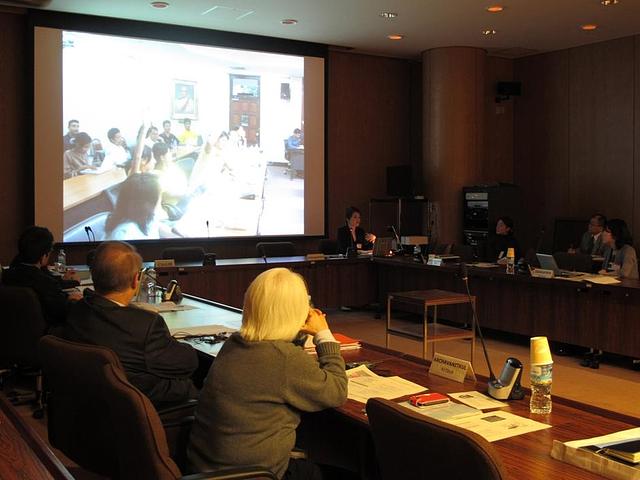Experience in Solving Statelessness and Nationalitylessness in Thailand: Identification, Prevention, Reduction and Protection (REDUCTION)
When the stateless and nationalityless problems have already taken place, reduction is another step to follow. Therefore, the sixth experience is work in collaboration among scholars, people organizations, and governmental organs to develop knowhow for statelessness and nationalitylessness reduction, namely ‘5x6x6’.
‘5’ stands for five groups of stateless and nationalityless people as mentioned in the classification. Again, they are: firstly unregistered persons; secondly Thai nationals registered as aliens; thirdly aliens born in Thailand in the registration; fourthly immigrants in the registration; and lastly Immigrants with the Connection with Foreign Country in the Registration.
In order to solve the stateless and nationalityless problems, these ‘6’ steps under applicable laws shall be done in each targeted group:
(1) Finding facts required under the relevant laws and policies of the people;
(2) Determining applicable laws and policies which relevant to each case;
(3) Studying how to acquire legal status under laws and policies;
(4) Exploring causes of loss of legal status under laws and policies;
(5) Examining how to recover legal status under laws and policies; and
(6) Exercising judicial process when there is injustice during implementation.
After understanding problems of the five and realizing all of six processes under the law, there shall be ‘6’ types of workers holding different characteristics, so that they can follow the processes to solve stateless and nationalityless problems of the people in collaboration. These workers are:
(1) Knowledge creators. These people help establishing and developing knowledge relating to the problems of each group. Also, they supervise all work processes of each worker in the group. Therefore, the important qualification of these people is to have well-rounded knowledge both substantive and procedural matters which relevant to the targeted group.
(2) Fact finders (responsible for the 1st process under ‘6’ steps under applicable laws). These people, unnecessary to be a lawyer, may have basic legal knowledge on requirement under laws and policies such as relevant facts or trustful evidence. Moreover, the fact finders are those who work closely with stateless and nationalityless people, so they shall have interactive skills for interviewing the people.
(3) Legal assistants (responsible for the 2nd, 3rd, 4th and 5th process under ‘6’ steps under applicable laws). These workers shall be lawyers with practical experiences in solving the problems. The legal assistants are ones who determine applicable laws and policies which are relevant to people in the group. Besides, they should have both knowledge and knowhow to develop legal status of the people under such laws and policies.
(4) Laws and policies reformers. These reformers should be currently a governmental official or a former one in order to understand the governmental system when the reformation is necessary. These people will take an important role when it is found that there are no appropriate laws or policies to solve the problems, or when it is apparent that existing laws or policies are out-of-date comparing with the present situations.
(5) Natural judiciary (responsible for the 6th process under ‘6’ steps under applicable laws). These mean of those with communication skills, journalists or reporters, for example. They shall be responsible for revealing unfair situations happened with stateless and nationalityless people to the rest of the society.
(6) Official judiciary (responsible for the 6th process under ‘6’ steps under applicable laws). Actually, these people also work for eliminate injustice happened during the processes of legal status development of the stateless and natioanlityless people. However, they mean of those working in the judicial system officially such as attorneys or judges.

ใน "Lessons Learned on Advocacy for Displaced and Stateless Persons"
ความเห็น (0)
ไม่มีความเห็น